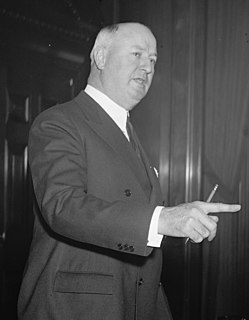A Quote by Dick Cheney
The Senator from Massachusetts has given us ample grounds to doubt the judgment and the attitude he brings to bear on vital issues of national security.
Related Quotes
A group of national security experts, military intelligence experts, issued a very concerning statement about Senator Bernie Sanders's views on foreign policy and national security, pointing out some of the comments he has made on these issues, such as inviting Iranian troops into Syria to try to resolve the conflict there; putting them right at the doorstep of Israel.
We have a media that goes along with the government by parroting phrases intended to provoke a certain emotional response - for example, "national security." Everyone says "national security" to the point that we now must use the term "national security." But it is not national security that they're concerned with; it is state security. And that's a key distinction.
I've said this before and I'm very proud of it, that when it comes to judgment, having run a hard race against Senator [Barack] Obama at the time, he turned to me to be secretary of State. And when it comes to the biggest counterterrorism issues that we faced in this administration, namely whether or not to go after bin Laden, I was at that table, I was exercising my judgment to advise the president on what to do, on that, on Iran, on Russia on China, on a whole raft of issues.
Allah has tailor made the test for each and every one of us and none of us will be given something which we can't bear. I am given something that I can bear and you are given something that YOU can bear. The tests won't be the same for you and me. This is why suicide is the a great wrong because by suicide you're basically declaring, 'Oh Allah this is too much, I can't take it anymore!
I'm not interested in embarrassing the United States. We as a nation need to foster a broader understanding of national security, and when in the name of national security the US government both overtly and covertly aligns itself with the apartheid state and against heroic freedom fighters for racial justice ... Not only in 1962 but also keeping in mind that Mandela was on the US terror watch list until 2008, that kind of myopic understanding of national security has devastating consequences.
The National Security Council assists the president by ensuring that he receives the best views and options from the various departments and agencies on any given issue. The ultimate policies are, as they should be, then decided upon by the president - not by the NSC staff or the national security adviser.































